The goal of INFINITEX (the Spanish acronym for Research into New Functions and Incorporated Intelligence in Textiles) project is to provide a boost to a national value chain for working with high added value functional and intelligent fabrics, as well as increasing their functions performances in terms of protection and comfort.
Apr 18th, 2013
Read more
Researchers have created a simpler, greener bottom-up method that replaces some of the carbon atoms with boron and nitrogen. This enables them to 'grow' graphene-like honeycomb lattices, simply by exposing the compounds to light.
Apr 18th, 2013
Read more
Researchers used a new casting method to produce polymeric nanoparticles casted by ethanol molecules in order to sense ethanol gas.
Apr 18th, 2013
Read more
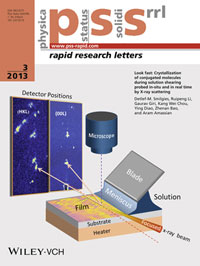 Like spreading a thin layer of butter on toast, Cornell scientists have helped develop a novel process of spreading extremely thin organic transistors, and used synchrotron X-rays to watch how the films crystallize.
Like spreading a thin layer of butter on toast, Cornell scientists have helped develop a novel process of spreading extremely thin organic transistors, and used synchrotron X-rays to watch how the films crystallize.
Apr 18th, 2013
Read more
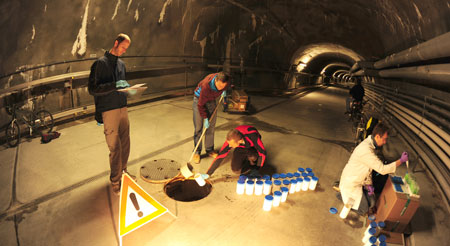 Nanosilver in wastewater can cause severe environmental damage if it occurs as a metal. A study now shows that nanosilver is quickly transformed into less problematic substances on its way to the wastewater treatment plant.
Nanosilver in wastewater can cause severe environmental damage if it occurs as a metal. A study now shows that nanosilver is quickly transformed into less problematic substances on its way to the wastewater treatment plant.
Apr 18th, 2013
Read more
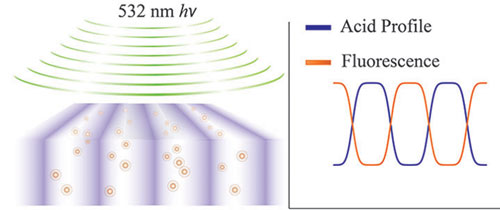 A team of researchers from the NIST Center for Nanoscale Science and Technology, the University of Maryland, and Korea University (Seoul, Korea) has measured the nanoscale distribution of photoacid molecules in photoresists using a fluorescence technique originally developed to provide images of biological structures smaller than the wavelength of light.
A team of researchers from the NIST Center for Nanoscale Science and Technology, the University of Maryland, and Korea University (Seoul, Korea) has measured the nanoscale distribution of photoacid molecules in photoresists using a fluorescence technique originally developed to provide images of biological structures smaller than the wavelength of light.
Apr 18th, 2013
Read more
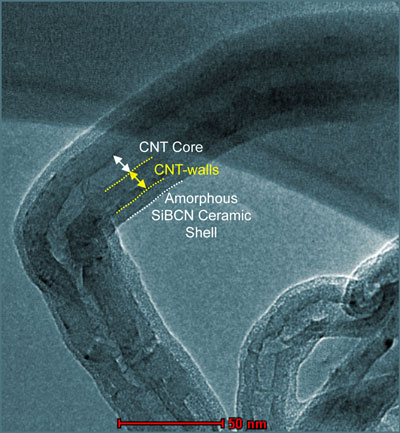 Researchers from the National Institute of Standards and Technology (NIST) and Kansas State University have demonstrated a spray-on mixture of carbon nanotubes and ceramic that has unprecedented ability to resist damage while absorbing laser light.
Researchers from the National Institute of Standards and Technology (NIST) and Kansas State University have demonstrated a spray-on mixture of carbon nanotubes and ceramic that has unprecedented ability to resist damage while absorbing laser light.
Apr 18th, 2013
Read more
Call it the ultimate nature documentary. Scientists at the University of Toronto have recorded atomic motions in real time, offering a glimpse into the very essence of chemistry and biology at the atomic level.
Apr 17th, 2013
Read more
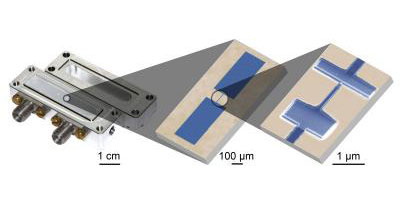 Physicists at ETH Zurich have developed a method for precisely controlling quantum systems by exploiting a trick that helps cats to land on their feet and motorists to fit their cars into parking spots. In the longer run, the method could lead to the development of more reliable quantum computers.
Physicists at ETH Zurich have developed a method for precisely controlling quantum systems by exploiting a trick that helps cats to land on their feet and motorists to fit their cars into parking spots. In the longer run, the method could lead to the development of more reliable quantum computers.
Apr 17th, 2013
Read more
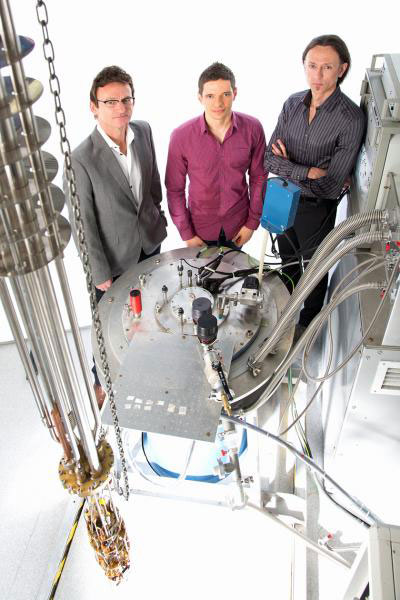 Engineers have created a functional quantum bit based on the nucleus of a single atom in silicon.
Engineers have created a functional quantum bit based on the nucleus of a single atom in silicon.
Apr 17th, 2013
Read more
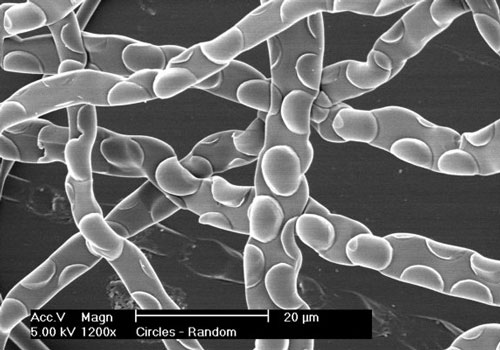 Researchers at the MIRA research institute have succeeded in imprinting microscopically small shapes on the surfaces of miniscule fibres. They were able to create all kinds of patterns on the surfaces of fibres just six micrometres in diameter. These fibres can be used to steer stem cell development in a specific direction.
Researchers at the MIRA research institute have succeeded in imprinting microscopically small shapes on the surfaces of miniscule fibres. They were able to create all kinds of patterns on the surfaces of fibres just six micrometres in diameter. These fibres can be used to steer stem cell development in a specific direction.
Apr 17th, 2013
Read more
 New research from Concordia University now brings the future of fashion into focus by taking a closer look at the next quantum leap in textile design: computerized fabrics that change their colour and their shape in response to movement.
New research from Concordia University now brings the future of fashion into focus by taking a closer look at the next quantum leap in textile design: computerized fabrics that change their colour and their shape in response to movement.
Apr 17th, 2013
Read more
Gold Standard Simulations (GSS) revealed today that the interplay between the effects of statistical reliability and variability could adversely affect 20nm CMOS SRAM yield. The study also defined a new reliability simulation framework to predict variability and reliability impact that enhances yield.
Apr 17th, 2013
Read more
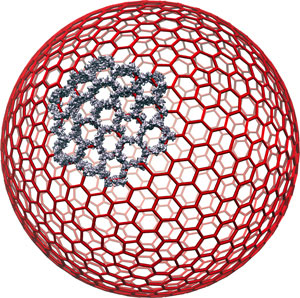 Scientists have developed a new type of nanoparticle with potential applications in chemistry, biology and medicine. The findings could potentially be used to deliver bioactive molecules, such as drugs, to cells and eventually diseased tissues in the body.
Scientists have developed a new type of nanoparticle with potential applications in chemistry, biology and medicine. The findings could potentially be used to deliver bioactive molecules, such as drugs, to cells and eventually diseased tissues in the body.
Apr 17th, 2013
Read more
Researchers at Drexel University recently reported on the discovery of a new family of two-dimensional materials called 'MXenes'. The materials' structures are similar to graphene, with which they share many properties, including good electrical conductivity and potential applications in energy storage. Now, Drexel researchers have demonstrated several new possible avenues for practical applications of MXenes.
Apr 17th, 2013
Read more
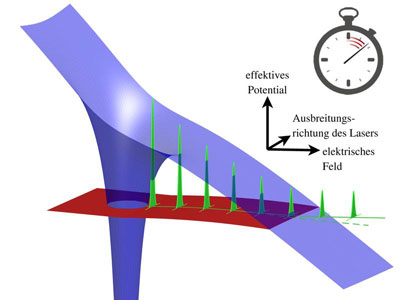 The time a particle takes to tunnel through a barrier in quantum mechanics is obviously longer than many physicists assumed so far. Scientists at the Max Planck Institute for Nuclear Physics in Heidelberg showed evidence that tunnelling takes a very brief but finite and measureable time. This is the result of their theoretical study on an electron that tunnels out of an atom in an intense laser field while being accelerated up near to the speed of light.
The time a particle takes to tunnel through a barrier in quantum mechanics is obviously longer than many physicists assumed so far. Scientists at the Max Planck Institute for Nuclear Physics in Heidelberg showed evidence that tunnelling takes a very brief but finite and measureable time. This is the result of their theoretical study on an electron that tunnels out of an atom in an intense laser field while being accelerated up near to the speed of light.
Apr 17th, 2013
Read more











 Subscribe to our Nanotechnology News feed
Subscribe to our Nanotechnology News feed